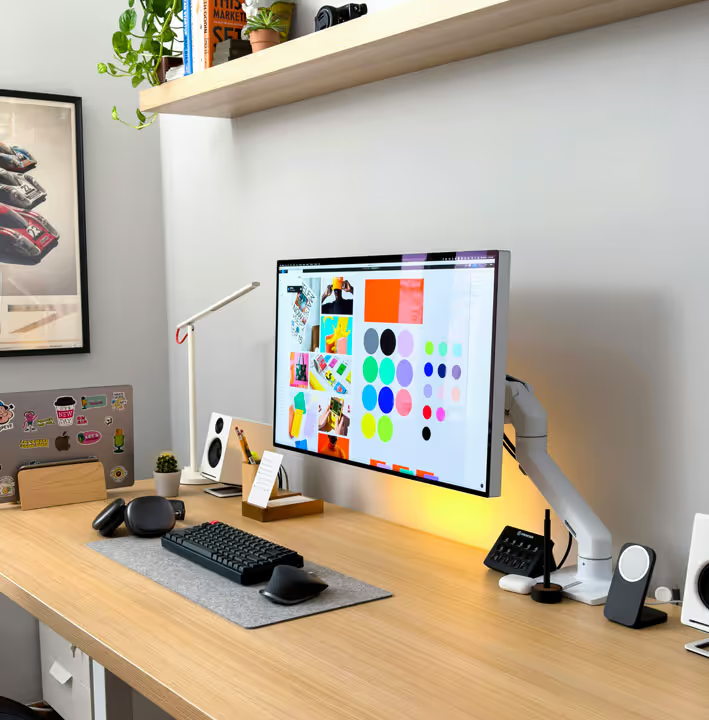I was grabbing coffee with a designer friend last week when she dropped this bomb: "I'm done working for clients who just want pretty things." She'd just turned down a six-figure project from a crypto startup because they couldn't articulate why they existed beyond making money. That conversation stuck with me because it perfectly captures what's happening in our industry right now.
The best creative studios aren't just choosing clients anymore — they're choosing causes. And surprisingly, this selectiveness is becoming their biggest competitive advantage.
Building a purpose driven agency isn't about slapping a mission statement on your website and calling it a day. It's about fundamentally restructuring how you operate, who you hire, and which projects you pursue. When Pentagram redesigned the identity for The Public Theater, they weren't just creating a visual system — they were amplifying voices that challenge cultural norms. That's the difference.
"The moment you compromise your values for a paycheck is the moment your team stops believing in what you're building".
Here's what most people miss: purpose isn't just about doing good — it's about creative sustainability. When your team believes in the work, they push harder, stay later (willingly), and produce ideas that actually matter. I've seen this firsthand with studios that focus on climate tech or education reform. Their portfolios might be smaller, but their impact metrics are off the charts.
The Talent Magnet Effect
Young designers today are different. They grew up watching Silicon Valley promise to change the world, then watched it optimize for engagement metrics instead. They're skeptical, values-driven, and willing to take pay cuts to work on meaningful projects. A purpose driven agency becomes a magnet for this talent.
Look at what happened when Gretel started focusing on cultural institutions and progressive brands. They didn't just attract better designers — they attracted designers who saw their work as activism. Their team retention went through the roof because people finally felt their pixels had purpose.
"The best creative work happens when personal values align with professional output — everything else is just decoration."
But here's where it gets tricky. Purpose without profit is just a hobby. The challenge for any purpose driven agency is finding that sweet spot where mission meets margin. Some studios solve this through a portfolio approach: taking on one lucrative but neutral project to fund two passion projects. Others, like Metabrand, focus exclusively on clients whose values align with theirs, betting that authenticity attracts premium rates.
Client Chemistry Over Client Lists
The traditional agency model chases logos — the bigger the client, the better. But purpose-driven studios flip this logic. They'd rather work with a scrappy nonprofit revolutionizing education than a Fortune 500 maintaining the status quo.
This selectiveness creates an interesting dynamic. Clients who share your values don't just hire you; they partner with you. They give you creative freedom because they trust your judgment. They become advocates for your studio because your success validates their mission. It's a completely different energy than the typical client-vendor relationship.
I've noticed something else: purposeful work travels differently. When you create an identity system for a mental health startup that's actually saving lives, people share it differently. They talk about it at dinner parties, not just design conferences. The work transcends the industry bubble.
The Operational Reality
Running a purpose driven agency requires different metrics. You can't just track billable hours and profit margins. You need to measure impact, team fulfillment, and mission alignment. Some studios I know actually score potential projects on a "values matrix" before deciding to pitch.
This also changes how you structure teams. Traditional agencies organize around accounts; purpose-driven studios organize around causes. You might have a sustainability squad, an education team, a health equity group. People choose their projects based on passion, not just availability.
The business development process transforms too. Instead of cold pitching, you're building relationships within specific communities. You're showing up at climate tech meetups, not just advertising awards shows. Your new business person needs to be part activist, part strategist.
What we're really talking about here is the evolution of creative work in an era where everyone questions institutional motives. Clients want partners who genuinely care about their mission. Talent wants employers who stand for something. And frankly, most of us got into this industry to make things better, not just prettier. The studios figuring this out aren't just building agencies — they're building movements, one project at a time.









